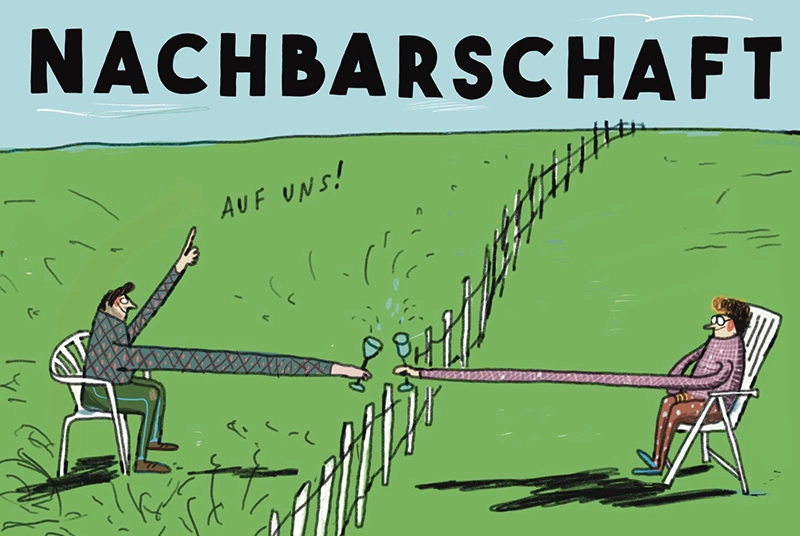
The poster for the annual theme of NEIGHBORHOOD by Johanna Benz puts it in a nutshell: Successful neighborliness is sensitive relationship work.
No space, no social system and no individual is without an environment - there is always a counterpart and neighbors who limit and structure one's own scope for action. Whether this gives rise to productive or destructive impulses is a matter of shaping relationships. This circumstance becomes tangible in rural areas - and especially in the Oderbruch - in various ways. This allows perspectives on several levels: First, there is the simple neighborhood in the villages, ranging from neighborly help to neighborly conflict. This perspective expands from the bilateral relationship at the garden fence to the entire village community. In the course of the regionalization of the rupture, which requires a strengthening of the spatial horizon, intercommunal relationships come into view. The special relationship between the Oderbruch and Brandenburg, Berlin and Poland results in a complex form of neighborhood.
This is our range of events on the annual theme
At March 1 we got the season off to a successful start with the Doors Open! We presented the workshop book KIRCHE and opened up the new theme with the exhibition "Druckfrisch: Kleine Dorfkirchen im Oderbruch" ("Hot off the press: Small village churches in the Oderbruch") by Heike Pander on both sides of the Oder. With the documentary film "Von Icke bis Platt" by director Gerald Backhaus, viewers were able to hear how we and our neighbors in Berlin and Brandenburg originally speak the language.
We start the year off right 5 April with the Neighborhood in Altranft program day. "Neighborhood Altranft - A museum in the village" is the title of the exhibition, which we will open in the castle park at 11 am. To coincide with the village anniversary, Reinhard Schmook will give a talk on the history of the village in the castle at 3 pm.
The Children's Day at the Oderbruch Museum, which we organize on May 03 celebrate. On this Saturday, the castle and park belong to the children - and their parents from near and far. Play and workshop activities, framed by cabaret, acrobatics and music, ensure fun and a good mood. For all those who want to get to know the Oderbruch Museum in a playful way. A large diorama exhibition will be on display in the castle.
Dock please! is the motto on June 07. On this day, the focus is on the German-Polish neighborhood. Experience a special kind of art trail in imaginary boats on the Oder and Warte rivers at the Berg-Schmidt-Hof, dock in unknown harbors and discover legendary, musical, sporting, artistic or culinary surprises.
We will open our annual exhibition Hallo Nachbarn! on July 05. An advertising pillar in the castle park welcomes you with quotes from the conversations we have had on the subject of NEIGHBORHOOD in the Oderbruch and we are opening our annual exhibition in the gallery. The centerpiece is a photo series by Alex Schirmer. In the gallery, students from the HNE Eberswalde and the Neubrandenburg University of Applied Sciences present the results of the NACHBARSCHAFTEN summer school. In the picture salon, the artist Kata Adamek, who was born in Opole on the Oder and lives in Berlin, exhibits large-format felt objects under the title "Meander".
At August 2 we are out and about in the cultural heritage and cycling from neighbor to neighbor via various cultural heritage sites. You can find out where we are going this time and who will be joining us artistically in good time via our newsletter, at blog.oderbruchmusuem.de or at kulturerbe-oderbruch.de.
Harvest crown tying is a matter for us! and takes place on September 06 at the Fischerhaus. The Altranfter Traditionsverein has mastered the art of crown tying and is happy to give guests at the Fischerhaus an insight into the intricacies of this work. The aim is to tie the crown for the regional harvest festival. We also invite you to take part in tying the harvest crown! Whether traditional or experimental, we look forward to a variety of harvest crowns. Get in touch with us.
A three-day festival in the village and the museum: from the September 19 to 21 the Brandenburg State Harvest Festival and 650 years of Altranft are reasons to celebrate. The town of Bad Freienwalde, together with the Altranft associations, invites you to experience agriculture and the village. There will be a large market with a music program, food, drink, regional products, a lovingly prepared parade and much more to experience. The Oderbruch Museum will be taking part with a varied program at the Fischerhaus.
For the program day on November 1 the small revue "The world in the Oderbruch, the Oderbruch in the world" has its premiere. People from many regions of the world have worked in the Oderbruch and left their mark, and quite a few people from the Oderbruch have gone out into the world and made their mark there. A multifaceted exhibition will be arranged as part of a performance. In the picture salon, we are showing paintings by Petra Schramm, who has traveled on both sides of the Oder and is showing her works under the title "In the Sky of the River - Landscapes".
At November 8 is spun. The SpinnNetz NordOst is active in Mecklenburg-Western Pomerania, but also in Brandenburg, Saxony-Anhalt, Lower Saxony and Schleswig-Holstein. is a guest at events. They meet once a year for a spinning meeting. In 2025, the loose association of over 100 spinners will meet at the Oderbruch Museum - in keeping with the annual theme of NEIGHBORHOOD. You are welcome to come and watch! There will also be a small supporting program.
With neighborhood stories we let the December 06 our season comes to an end. We read, sing and make music in the castle. The exact schedule will be developed over the course of the year based on our research into the annual theme of NEIGHBORHOOD. In the castle cellar, we present a new exhibition with pewter figures on the history of the Oderbruch.
Our program days in the annual theme of NEIGHBORHOOD are complemented by events organized by Partner projects at six cultural heritage sites and through a series of neighborhood concerts entitled "Rendezvous"in which two music groups, choirs or song groups always meet at different cultural heritage sites to make music together.
Partner projects on the annual theme 2025 SUSTAINABILITY
An alphabet of the neighborhood, two photo exhibitions, two village history projects, a documentary film and a Kawent beer: as in previous years, the range of partner projects 2025 is wide-ranging.
A total of six projects can be funded from the Oderbruch Municipal Working Group's cultural resources fund in 2025.
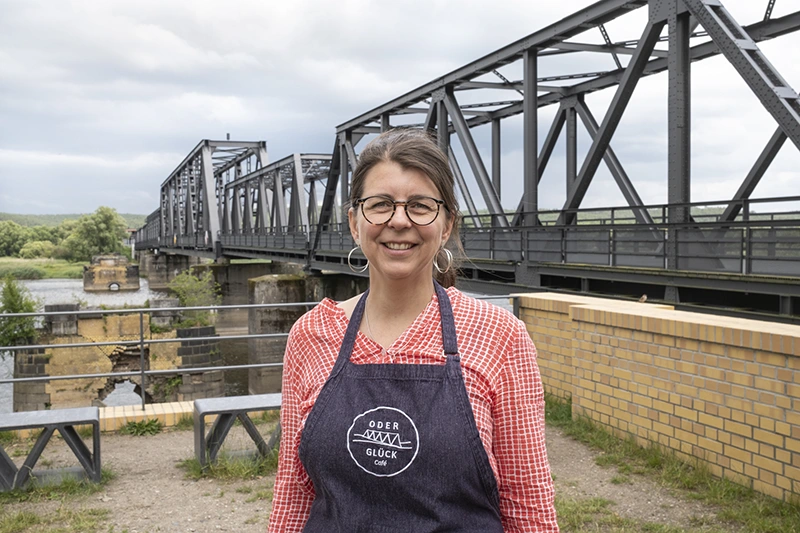
Bridges. Places of German-Polish neighborhoods
Saturday, October 11, 2025 3:00 p.m. Exhibition: Bridges. Places of German-Polish Neighborhoods A reportage by Holger Herschel and Jürgen Danyel in the old fire station Neurüdnitz [...]
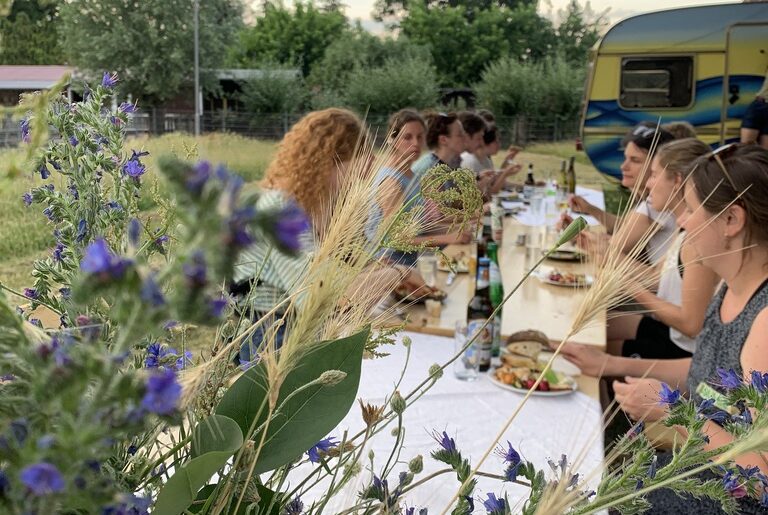
Neighborhood - rural community today
Project presentation on Saturday, September 13, 2025 at 2:00 pm at Coworking Oderbruch Letschin [...]
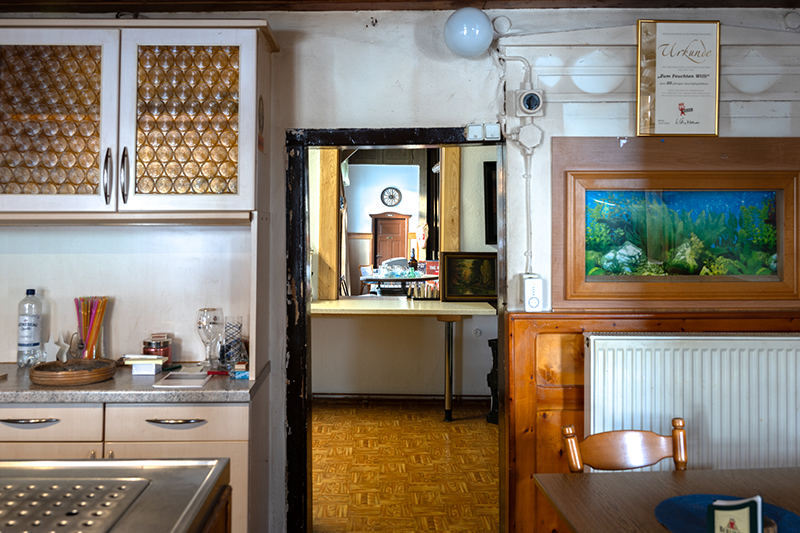
Closed Society - Photographs by Heike Zappe
A cabinet exhibition in the Altlangsow school and prayer house from July 5 to August 3, 2025 [...]
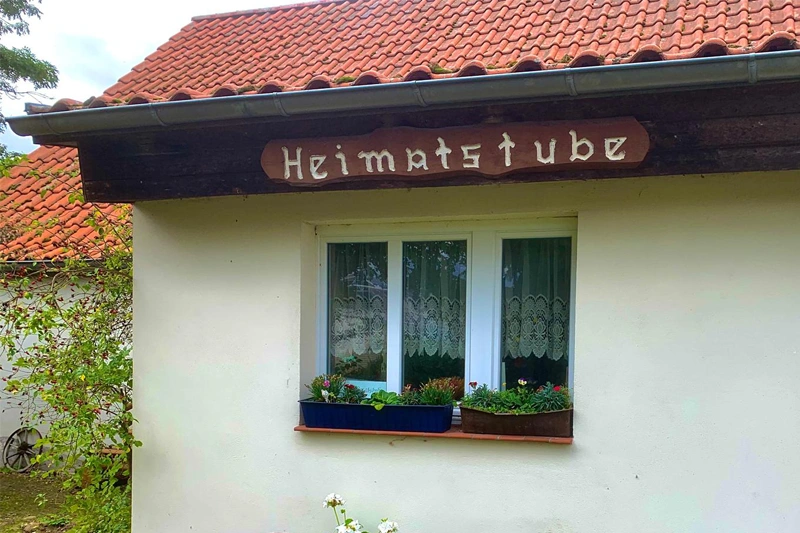
Bliesdorf's parlor - history of a village
A new place for memories is being created in the old Heimatstube [...]
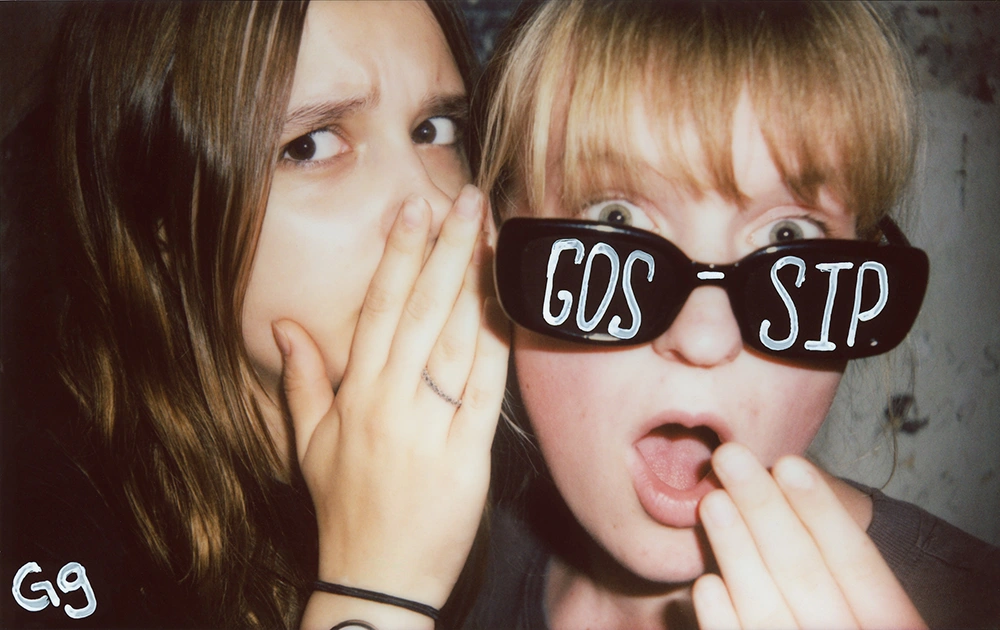
An alphabet of the neighborhood
An alphabet of the neighborhood Exhibition opening of the photo art project on September 13 at 3 p.m. in the Altlangsow school and prayer house [...]